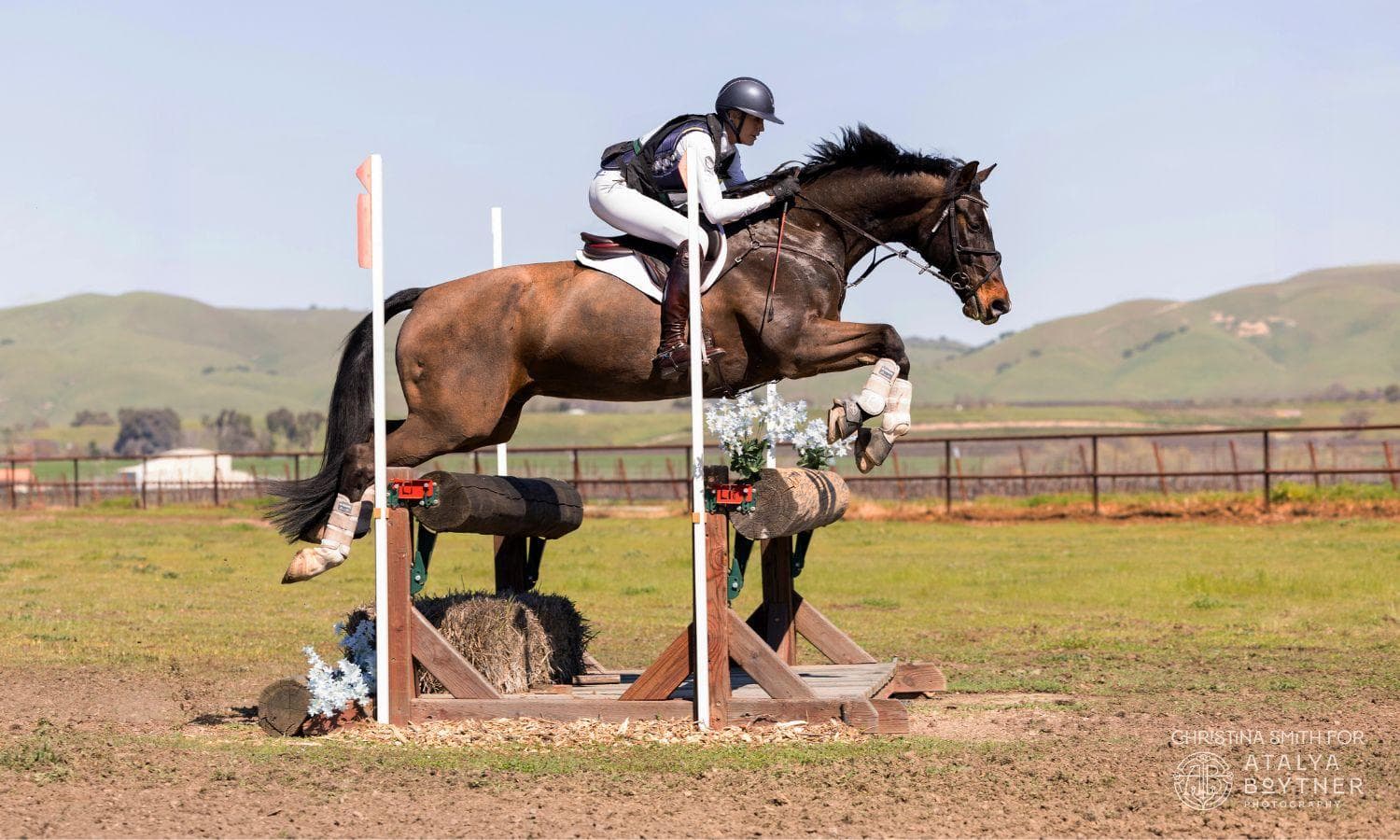Featured Clinician: Daniel Stewart
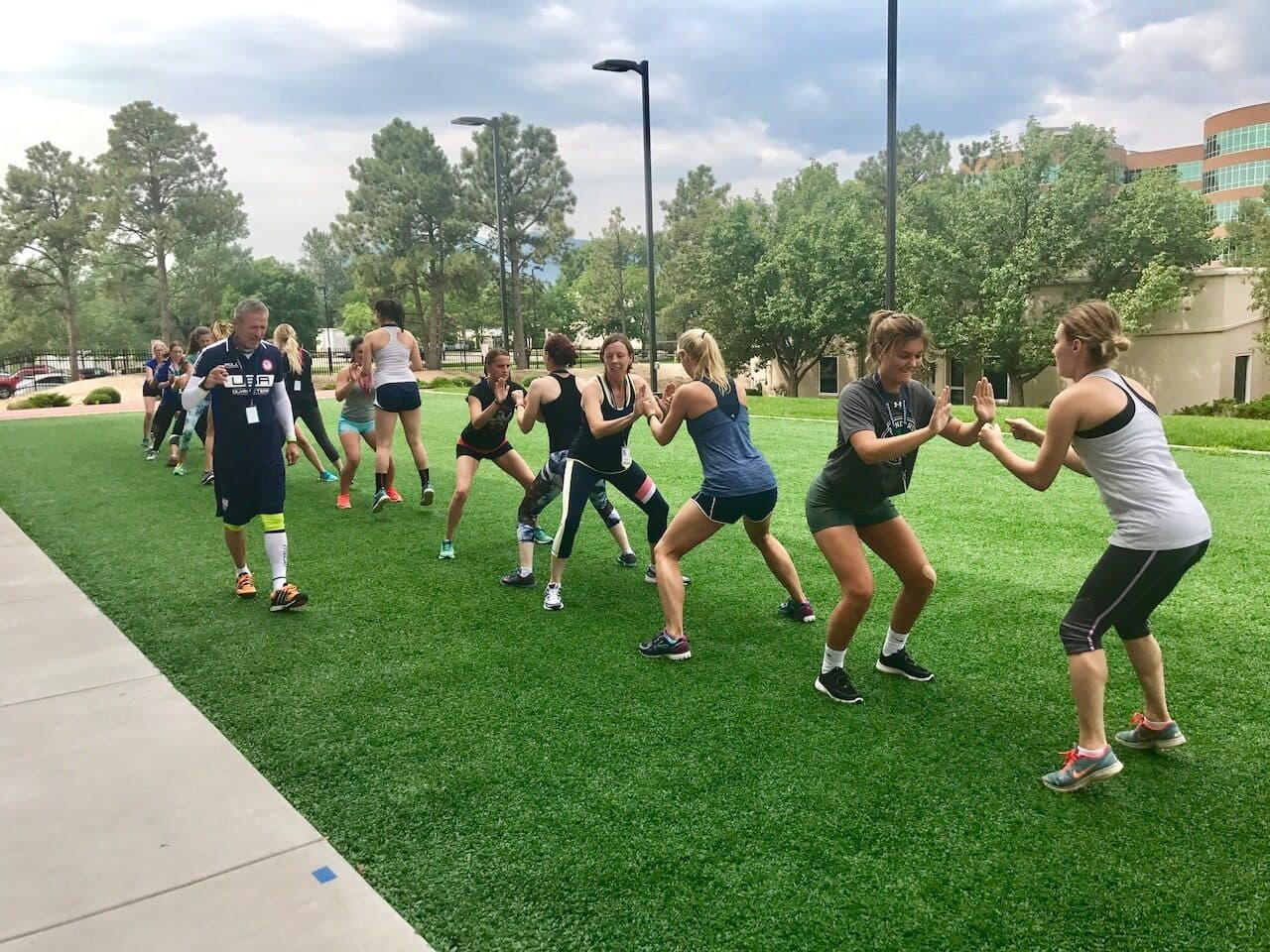
Following a whirlwind clinic tour spanning 60 clinics in 35 cities over 60 days, Daniel Stewart carved out some time to sit down with Event Clinics and talk about his unique Equestrian Athlete Camps. Held throughout the year at the United States Olympic Training Centers (USOTC), these internationally acclaimed unmounted camps are a favorite of riders from all backgrounds looking to advance their sports psychology and fitness. We were lucky enough to hear great tips for dealing with horse show anxiety!
Coach Stewart has been a successful international trainer and instructor for over 30 years. Between 1999 and 2007, he coached several US Equestrian Teams at World Championships, the World Equestrian Games, and the Olympics. He has taught at the Olympic Training Center for 15 years and in 2016 began to host multi-day Equestrian Athlete Camps at the incredible locations throughout the United States that could benefit every rider.
“I’ve always been an athlete first and an equestrian second," said Stewart. This identity, along with his degree in Sports Science, inspired the Equestrian Athlete Camps at the USOTC. Coach Stewart is proud to be offering riding athletes something that they may not otherwise have access to. He felt that the quality of the USOTC facilities themselves as well as the high caliber of coaching should be accessible to riders of all levels and ages. In fact, attendees range in age from just 10 years old to 66 years old.
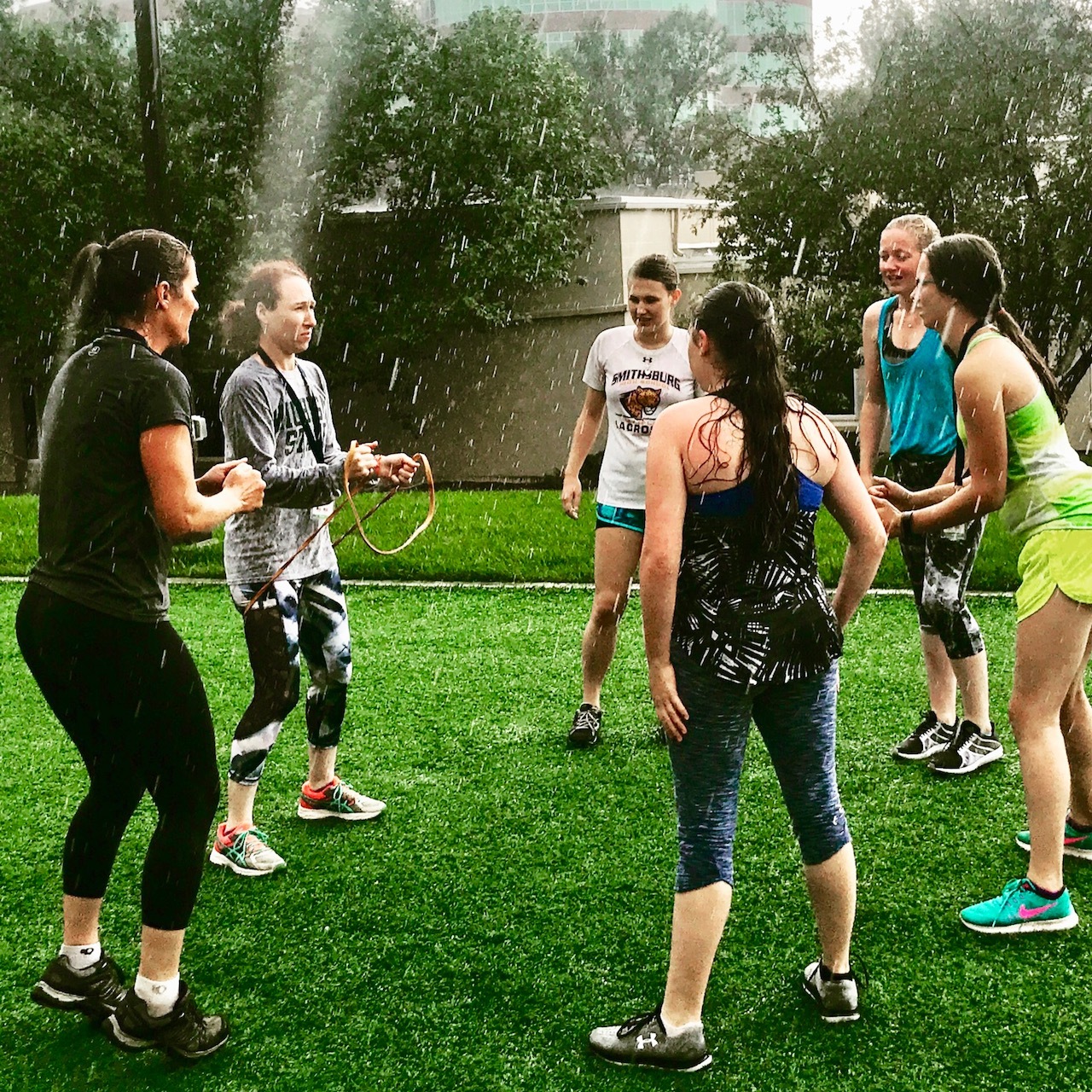
Much of the driving force behind Stewart’s unique career path came from some advice he was given as a teenager that ultimately backfired. “‘Danny, don’t you dare become friends with anyone at this barn. If you become friends with them you will not want to beat them.’” Hearing this really changed things for Coach Stewart.
“I’ve built my riding career on the basis that riding is not about beat or be beaten. Camaraderie is just as important as competition, tenacity is just as important as teamwork. I understand that we all set goals and aspire to achieve them, and sometimes that means stepping on a podium or a primary colored ribbon, but we need to find value in ourselves and believe that we’re part of something bigger. One team is always better than just one."
For mounted sessions, Coach Stewart told us, “I expect students to give 100 percent, and I tell them that I expect all of them to make mistakes. If they’re not making mistakes, they’re not giving 100 percent. I am a believer in error-based learning; our best learning opportunities immediately follow making mistakes. We shouldn’t just go through life, we should grow through life. You don’t grow if you’re afraid you can’t do something well.”
“I make a massive effort to do my very best to respect and to instruct the riders in all of my clinics and Training Camps," said Coach Stewart.
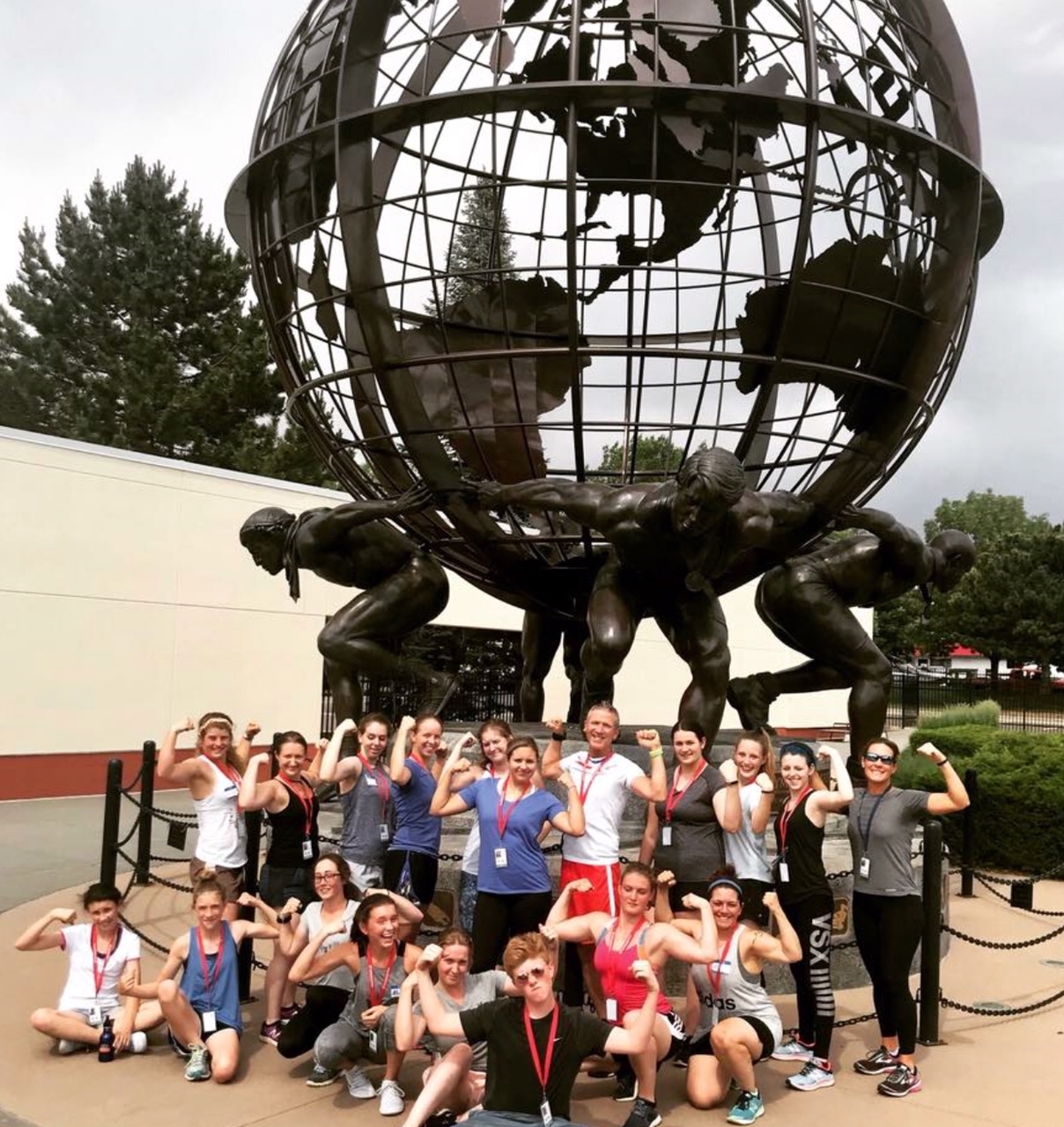
The Equestrian Athlete Camps are quite unique in that there is no horse required. They are designed so that equestrians can learn to treat themselves with the same respect that they have been giving their equine partners. Coach Stewart wants riders to begin to treat and train themselves like athletes.
“Equestrians believe they are more complete and prepared upon leaving [Athlete Camp at USOTC].” Coach Stewart’s chief goal for his camps includes giving each rider the tools to develop better fitness and confidence, plus increase focus and resiliency to as to better cope with making mistakes. His chief request for riders embarking upon the Athlete Camps, though, is to “redefine failure.” “I ask students to push themselves to failure, then give one more effort. My motto is, ‘Give your best, then give the rest.’”
“One of the goals of the camps at USOTC is to teach equestrians to make exercise fit their lives. A majority of equestrians don’t exercise because life is too busy. Exercises taught at our Equestrian Athlete Camps are designed to look and feel like riding; we do squats in jumping position, and our kickboxing classes look like jump courses. We’re engaging in the practice of specificity of sport, in much the same way that a rower works on a rowing machine during the winter months when water-time isn’t accessible.” Injury prevention, physiology, and recovery are also important facets of the complete athletic education that riders receive at these camps.
Riders leave camp with both a fitness and a meal plan specifically tailored to suit their needs and lifestyle, inspired by their proximity to active national athletic teams, having slept down the hall from the swimmers and lifted weights alongside the gymnasts.
“We graze, just like the horses, eating between five and seven meals each day in the athlete dining center." There’s discussion about what meals are being prepared for all of the athletes and why, and riders are educated as to which nutrition plans best suit the active equestrian lifestyle.
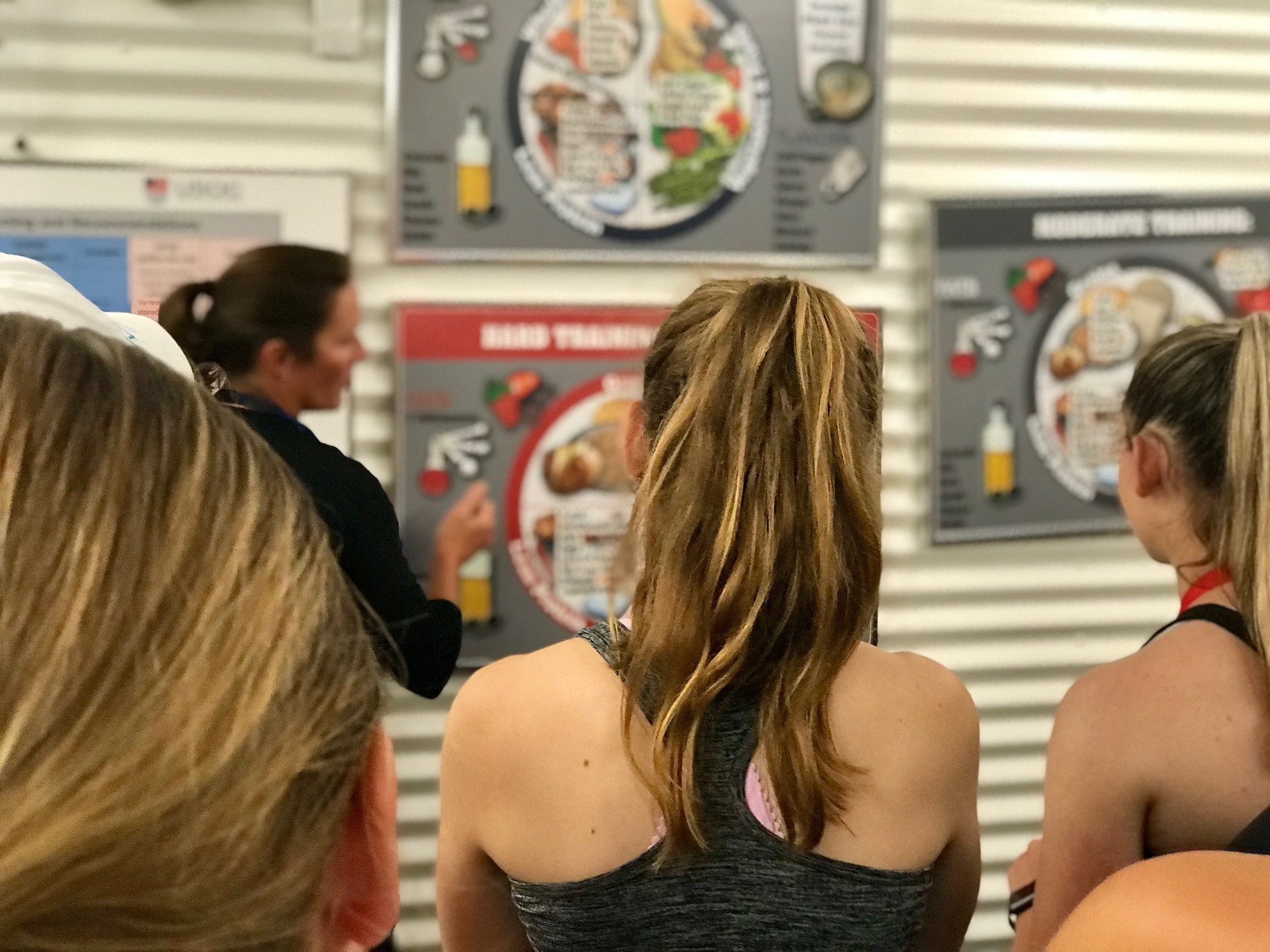
“The mental direction of our sport deserves as much dedication as the physical direction." Because of this, a portion of the camps’ curriculum focuses on mental coaching and applications of sports psychology. Classroom time is dedicated to confidence-building workshops and aiding riders in developing resiliency such that they can hold it together when it would be normal to let things fall apart. Equestrians need to hone the skillset to “make the rest of the ride the best of the ride. Riders need to understand that mistakes are not bad. In fact, they’re good. Every time we make one, we learn."
To better deal with show jitters and performance anxiety, Coach Stewart focuses attention to something many riders do not consider. “Riding is a sport of distances. We have twelve-foot strides and 500 meters per minute and three-foot fences, but the five inches between our ears is a distance just as important as the stride and the height." He explained, “Inside each and every one of us is a complete rider capable of greatness. Equestrian athletes need to develop a strong leg, position, seat, and posture but equally strong focus, confidence, willpower, and optimism.”
Competitive riders tend to get more nervous when they fall victim to outgrouping, a phenomenon that occurs when athletes perceive a competition to be a ‘me versus them’ event. Equestrians lose focus on the dressage test or jumping course when distracted by worry. To spend time worrying about what the judge thinks, what peers think, and how spectators see a ride can be distracting. “Enjoy the judges, appreciate constructive criticism, and recognize that the people in the stadium or on the sidelines are thinking good things! Shifting the mindset away from fear of others’ perceptions can get you to the point where you believe you can tackle any challenge you face”, suggested Coach Stewart.
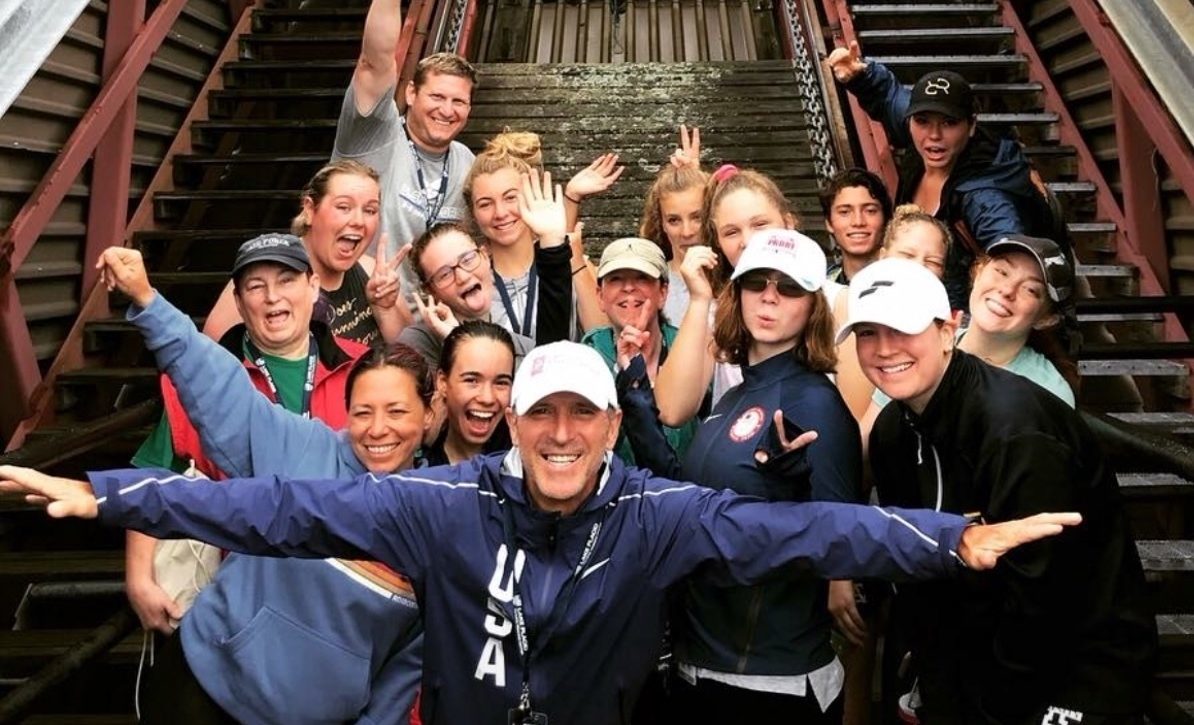
Given that Coach Stewart spends such a great deal of time giving back to equestrian sport and just as much time traveling to teach, EC had to ask just how he manages to balance family life with his career.
“I’m very lucky I have it figured out,” he told us. “During the summer months, my family travels with me to a number of cities. I schedule my teaching until a certain time each day, and then we do things like go river rafting or visit museums as a family. From September to May, I take my kids to school every day - I’m at home Monday to Friday, and then I’m in a different city each weekend to teach. Sure, I miss some weekend things, but I’m okay with that because I’m such a huge part of my kids’ lives during the week.”
Traveling so much is sure to take its toll, but Coach Stewart told us that he does enjoy watching movies while on-the-go and with his family.
“I’m kind of a hopeless romantic, always looking for a happy ending - I watch Hallmark and Christmas movies all year long. But right now I can’t stop watching Up and Wall-E. [Wall-E] is great because it’s a love story built upon impossibilities,” he admitted.
For more from Daniel Stewart, check out his USEA Tip of the Month. You can register for his upcoming Equestrian Athlete Camps at the United States Olympic Training Centers in New York, Colorado, and Florida through www.eventclinics.com.

